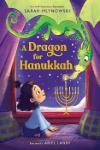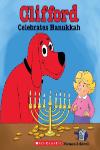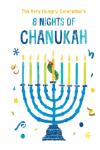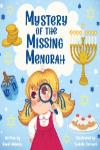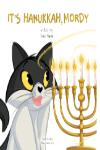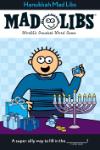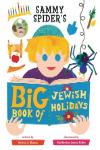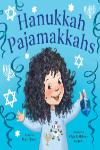Philanthropy, family research, and golf; Thoughts on “Elusive Links” by Dan A Rosenberg

Buy this book at Amazon or for Kindle
If you appreciate entertainingly written historical fiction, as I do, you will love “Elusive Links” by Dan A Rosenberg, which, partially, starts off in 1492, when Jews were expelled from Spain. I studied quite a bit of this famous event of history but never read a novel set then. Through a smart, hardworking, and lovable character and his family, this book makes this era relatable. It is an exciting adventure and family drama with its ups and downs, arching through multiple countries, where the hero’s journey ends not just with a personal happy end but a significant contribution to the world (of sports).
I admit, that when I started to read the book I was more excited about the chapters set five centuries ago as opposed to the other part of the story set two decades ago. As I kept reading though that storyline drew me in as well. The framework for that part of the novel is a love story and I am not my personal favorite genre. But there is so much more in there. For one, even though I lived through those years as an adult, I rarely think of the minor details of everyday life. The book captured life so well right before the introduction of smartphones that it triggered a pleasant trip down on memory lane. If you are a bit of a foodie you will savor the delicious description of food and drinks.
Reading is a solitary experience. When we read a book we do it alone. It is an interaction between the pages (or screen) and our brains with the help of our eyes. It may become a social affair if we start sharing our thoughts about what we read in a book club, with a friend or family member or online commenting. The three main themes that grabbed me here are the opposite of solitary, they all need more than one-person: charity, family research, and golf.
For any form of charity you need, at minimum, a giver and a recipient. You may have heard from people who are less than willing to give charity to the poor that their unwillingness stems from their belief that it is better to teach them how to support themselves. While the latter is true, their attitude puts them close to the bottom of “The Golden Ladder of Charity”. Rabbi Moshe ben Maimon, aka Maimonides, aka Rambam, a 12th-century Jewish doctor and scholar laid down in his expensive Mishneh Torah the eight levels of charity in descending order of greatness. These levels and their author are an integral part of the book and an inspiration to its protagonist’s self-discovery on his road to conversion. Below is a short recap, excerpted from here. For the full version, I recommend reading the Hebrew along with the English at Sefaria.org:
- entering into a partnership with him, or finding employment for him, in order to strengthen his hand so that he will not need to be dependent upon others
- to give to the poor without knowing to whom one gives, and without the recipient knowing from who he received
- one knows to whom one gives, but the recipient does not know his benefactor
- one does not know to whom one gives, but the poor person does know his benefactor
- one gives to the poor person directly into his hand, but gives before being asked
- one gives to the poor person after being asked
- one gives inadequately, but gives gladly and with a smile
- one gives unwillingly
About 15 years ago I started to put together my family tree, purely based on family lore and pictures. Half a year ago, after I got the results of my DNA test back, I continued the then-abandoned process and started to check records and registries too. I fully share the palpable excitement that family research can bring to the researcher which is excellently described in the book. I felt, along with them, the elevation of the discovery of information about an ancestor that lived a long time ago brought me as I personally experienced it too. Again, although the archival research process can be done alone, for it to be done there have to be ancestors and descendants.
A, if not the main theme of the book is the sport of golf. The education I have received on this topic via the book filled a hole in my knowledge of American culture. Don’t get scared by my use of the word “education”, there are no lectures in the book. Instead, all the knowledge about golf shared is contextual, helping a newbie learn about it or told through interactions between the characters. The author must have done serious research work: the history of golf he rehashed in the book seems to be accurate. I am impressed by and grateful for it.
I had so much fun reading this book because it had the perfect balance of elements I like. First and foremost it is an excellent novel, that you can just read and not to think too much about it if you don’t want to. However, if you do then you find yourself learning about Judaism, history, golf, ethics, and family research too. You can also find delight in the descriptions of delicious foods and drinks. Go ahead and jump into it, you won’t be disappointed.
The book’s page on the author’s website.
Year first published: 2022

